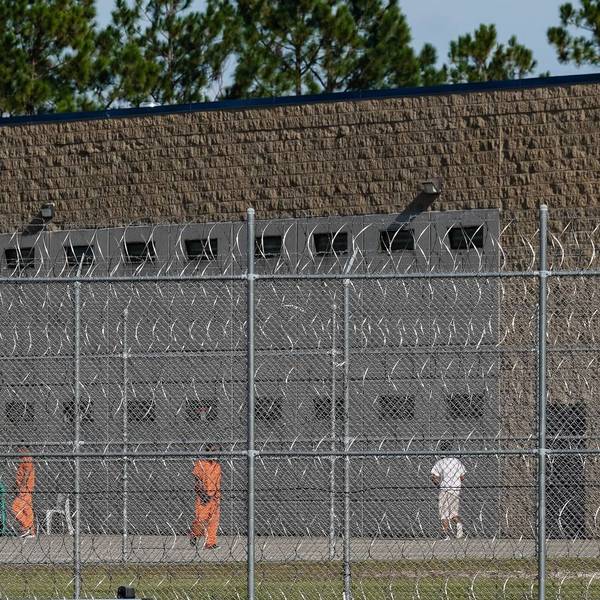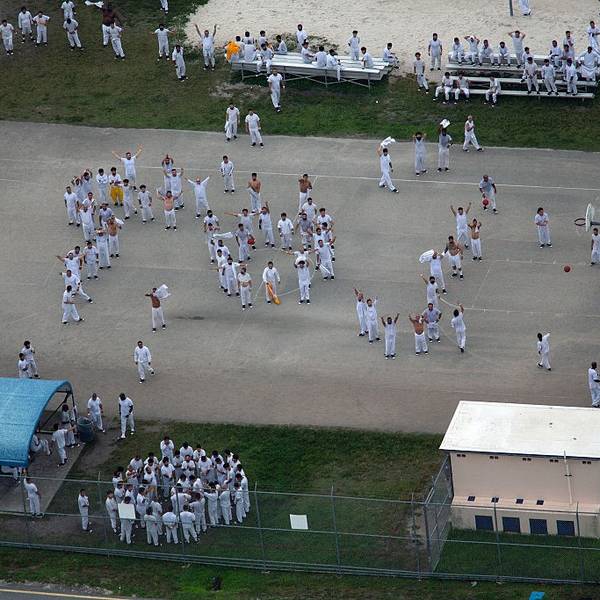Ninth Circuit Judge: No 'Masking Brutality' of Death Penalty
In dissenting opinion, appeals court judge argues that lethal injection is 'misguided' attempt to shield reality
A top federal judge on Monday issued an evocative and forthright attack on the death penalty, saying that the practice of "lethal injection" is a misguided attempt by society to "mask" the "horrendous brutality" of the act.
"Using drugs meant for individuals with medical needs to carry out executions is a misguided effort to maks the brutality of executions by making them look serene and peaceful--like something any one of us might experience in our final moments," Ninth Circuit Court chief justice Alex Kozinski, wrote in a dissenting opinion in the lethal injection secrecy case of Joseph Wood.
"But executions are, in fact, nothing like that," Kozinski continued. "They are brutal, savage events, and nothing the state tries to do can mask that reality."
The comments were made, unexpectedly, in Kozinski's dissenting opinion in the Ninth Circuit Court ruling that denied the state of Arizona grounds to challenge the postponement of Wood's execution, which is being delayed over the secrecy of its capital punishment procedures.
Though Kozinski is for the death penalty, he argued that, "If we as a society want to carry out executions, we should be willing to face the fact that the state is committing a horrendous brutality on our behalf."
According to the Guardian's Ed Pilkington, the statement represents "one of the most high-profile attacks on the U.S. death penalty," as the practice of death by lethal injection has come under increasing scrutiny following Europe's boycott of producing death penalty drugs.
The dissent was issued days after a California judge declared the state's death penalty system "unconstitutional," arguing that long delays and uncertainty over whether one will ever be executed amounts to "cruel or unusual punishment."
"If we are willing to carry out executions, we should not shield ourselves from the reality that we are shedding human blood."
--Ninth Circuit Court chief justice Alex Kozinski
In the Wood v. Ryan dissent, Kozinski said that if governments wish to continue carrying out the death penalty, they must "return to more primitive--and foolproof--methods of execution."
After weighing the drawbacks of historic alternatives, Kozinski settled on the firing squad as being the "most promising."
"Sure, firing squads can be messy," he wrote, "but if we are willing to carry out executions, we should not shield ourselves from the reality that we are shedding human blood."
"If we, as a society, cannot stomach the splatter from an execution carried out by firing squad, then we shouldn't be carrying out executions at all."
An Urgent Message From Our Co-Founder
Dear Common Dreams reader, The U.S. is on a fast track to authoritarianism like nothing I've ever seen. Meanwhile, corporate news outlets are utterly capitulating to Trump, twisting their coverage to avoid drawing his ire while lining up to stuff cash in his pockets. That's why I believe that Common Dreams is doing the best and most consequential reporting that we've ever done. Our small but mighty team is a progressive reporting powerhouse, covering the news every day that the corporate media never will. Our mission has always been simple: To inform. To inspire. And to ignite change for the common good. Now here's the key piece that I want all our readers to understand: None of this would be possible without your financial support. That's not just some fundraising cliche. It's the absolute and literal truth. We don't accept corporate advertising and never will. We don't have a paywall because we don't think people should be blocked from critical news based on their ability to pay. Everything we do is funded by the donations of readers like you. Will you donate now to help power the nonprofit, independent reporting of Common Dreams? Thank you for being a vital member of our community. Together, we can keep independent journalism alive when it’s needed most. - Craig Brown, Co-founder |
A top federal judge on Monday issued an evocative and forthright attack on the death penalty, saying that the practice of "lethal injection" is a misguided attempt by society to "mask" the "horrendous brutality" of the act.
"Using drugs meant for individuals with medical needs to carry out executions is a misguided effort to maks the brutality of executions by making them look serene and peaceful--like something any one of us might experience in our final moments," Ninth Circuit Court chief justice Alex Kozinski, wrote in a dissenting opinion in the lethal injection secrecy case of Joseph Wood.
"But executions are, in fact, nothing like that," Kozinski continued. "They are brutal, savage events, and nothing the state tries to do can mask that reality."
The comments were made, unexpectedly, in Kozinski's dissenting opinion in the Ninth Circuit Court ruling that denied the state of Arizona grounds to challenge the postponement of Wood's execution, which is being delayed over the secrecy of its capital punishment procedures.
Though Kozinski is for the death penalty, he argued that, "If we as a society want to carry out executions, we should be willing to face the fact that the state is committing a horrendous brutality on our behalf."
According to the Guardian's Ed Pilkington, the statement represents "one of the most high-profile attacks on the U.S. death penalty," as the practice of death by lethal injection has come under increasing scrutiny following Europe's boycott of producing death penalty drugs.
The dissent was issued days after a California judge declared the state's death penalty system "unconstitutional," arguing that long delays and uncertainty over whether one will ever be executed amounts to "cruel or unusual punishment."
"If we are willing to carry out executions, we should not shield ourselves from the reality that we are shedding human blood."
--Ninth Circuit Court chief justice Alex Kozinski
In the Wood v. Ryan dissent, Kozinski said that if governments wish to continue carrying out the death penalty, they must "return to more primitive--and foolproof--methods of execution."
After weighing the drawbacks of historic alternatives, Kozinski settled on the firing squad as being the "most promising."
"Sure, firing squads can be messy," he wrote, "but if we are willing to carry out executions, we should not shield ourselves from the reality that we are shedding human blood."
"If we, as a society, cannot stomach the splatter from an execution carried out by firing squad, then we shouldn't be carrying out executions at all."
A top federal judge on Monday issued an evocative and forthright attack on the death penalty, saying that the practice of "lethal injection" is a misguided attempt by society to "mask" the "horrendous brutality" of the act.
"Using drugs meant for individuals with medical needs to carry out executions is a misguided effort to maks the brutality of executions by making them look serene and peaceful--like something any one of us might experience in our final moments," Ninth Circuit Court chief justice Alex Kozinski, wrote in a dissenting opinion in the lethal injection secrecy case of Joseph Wood.
"But executions are, in fact, nothing like that," Kozinski continued. "They are brutal, savage events, and nothing the state tries to do can mask that reality."
The comments were made, unexpectedly, in Kozinski's dissenting opinion in the Ninth Circuit Court ruling that denied the state of Arizona grounds to challenge the postponement of Wood's execution, which is being delayed over the secrecy of its capital punishment procedures.
Though Kozinski is for the death penalty, he argued that, "If we as a society want to carry out executions, we should be willing to face the fact that the state is committing a horrendous brutality on our behalf."
According to the Guardian's Ed Pilkington, the statement represents "one of the most high-profile attacks on the U.S. death penalty," as the practice of death by lethal injection has come under increasing scrutiny following Europe's boycott of producing death penalty drugs.
The dissent was issued days after a California judge declared the state's death penalty system "unconstitutional," arguing that long delays and uncertainty over whether one will ever be executed amounts to "cruel or unusual punishment."
"If we are willing to carry out executions, we should not shield ourselves from the reality that we are shedding human blood."
--Ninth Circuit Court chief justice Alex Kozinski
In the Wood v. Ryan dissent, Kozinski said that if governments wish to continue carrying out the death penalty, they must "return to more primitive--and foolproof--methods of execution."
After weighing the drawbacks of historic alternatives, Kozinski settled on the firing squad as being the "most promising."
"Sure, firing squads can be messy," he wrote, "but if we are willing to carry out executions, we should not shield ourselves from the reality that we are shedding human blood."
"If we, as a society, cannot stomach the splatter from an execution carried out by firing squad, then we shouldn't be carrying out executions at all."

